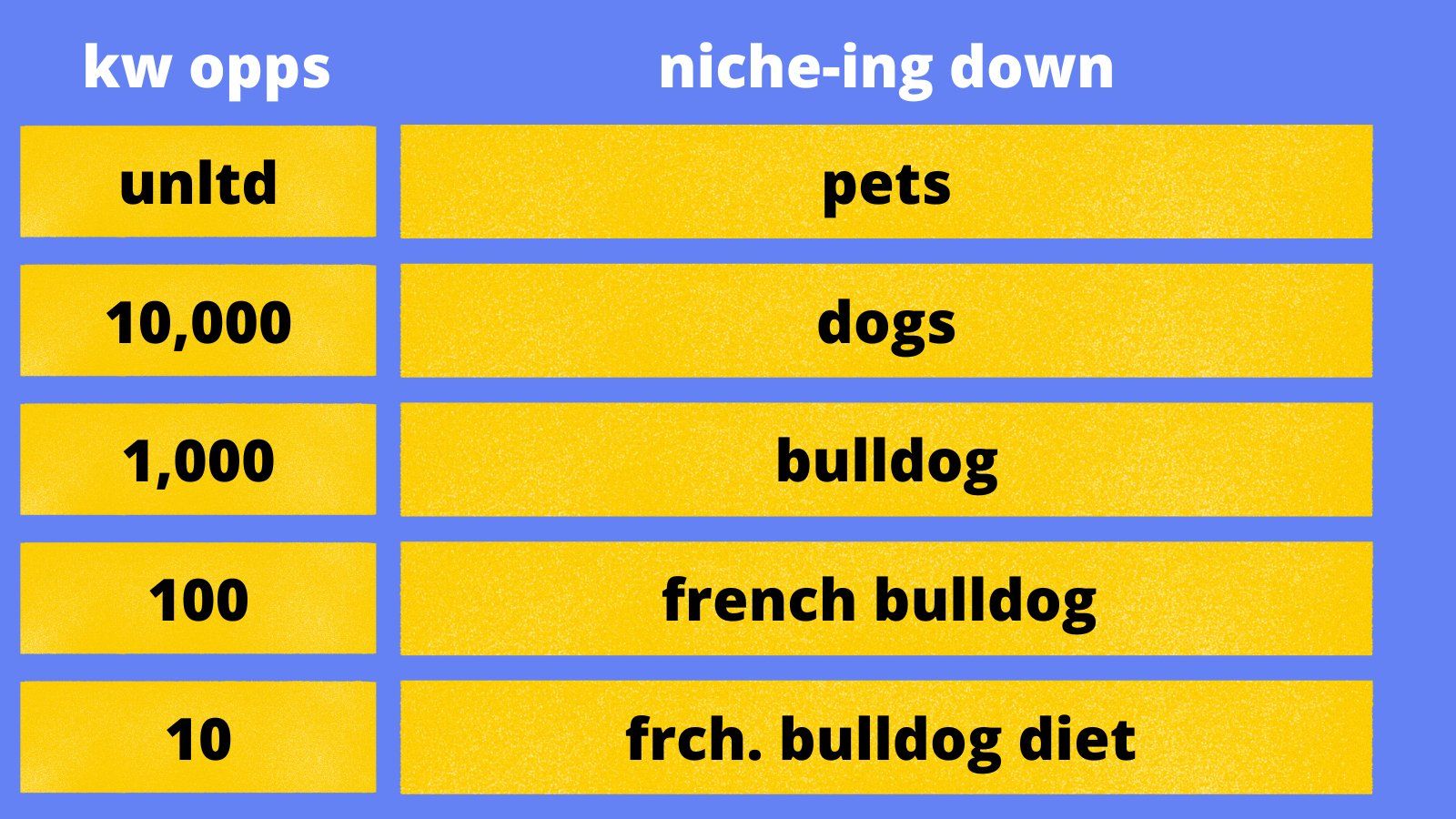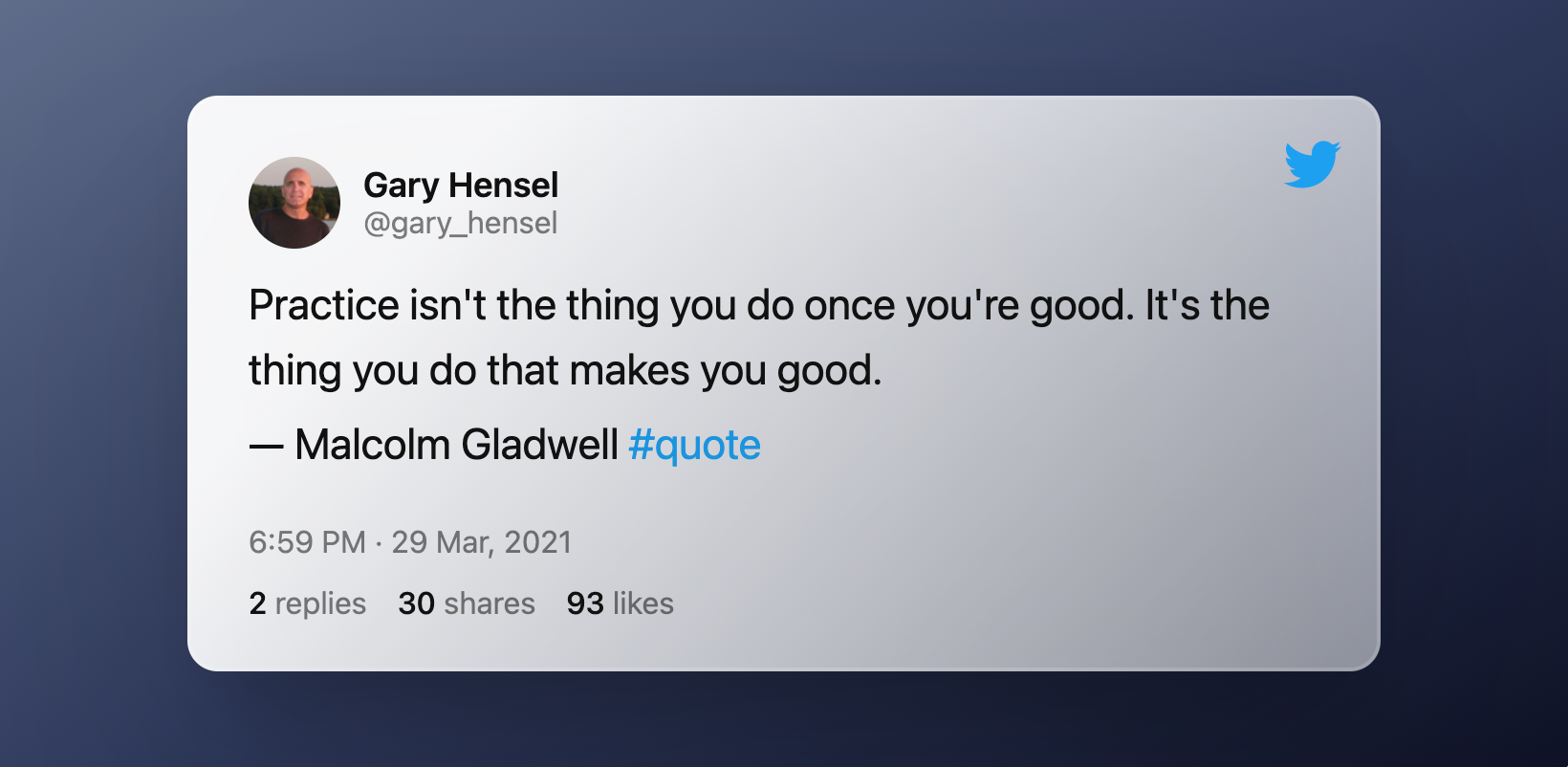📚 Success is not about what you know
It's about what you learn while doing. No person running a five, six, or seven-figure newsletter knew the exact path forward when they began, but they started anyway. And now, it's your turn.
💬 In this week's issue:
- Upside down niches. Why thinking small is the key to getting noticed.
- Sustainable growth hacks. Are you being intentional or passive towards your growth goals?
- Temporary creators. If you want to turn your online business into a long-term gig, here's how.
🚨 How to break into big niches
You can apply this to pretty much any topic.

One of the reasons people often struggle to make progress in their niche is that they approach it from the top-down instead of from the bottom-up. Marketer Ted French shares the difference in the following thread.
how do you break down big niches like travel? this is how I do it
— Ted French (@TedFrench) May 1, 2022
- there’s unlimited travel keywords
- 10,000s about travel in Europe
- 1,000s about France
- 100s about Paris
- 10 abt the Eiffel Tower
start with 10 articles on Eiffel Twr, then the Louvre, l’arc de triomphe etc pic.twitter.com/feIYxotLGn
French goes on to explain that new writers, podcasters, and YouTubers should all "start building small clusters about a specific subtopic" and strategically branch out to other, related sub-topics.
Here's another example they provide from the pet category:

This is how you build a "competitive moat" for your content business — by establishing authority from the ground up, leaning into patient creation, and stacking your small wins into a big success story.
🗞 Latest tips & stories
- How to set the best sender name for your newsletter
- Tips for creating a customer persona
- Why there's no such thing as a perfect YouTube video
- A newsletter checklist for new writers
- Why the Quartz newsletter business was sold
🤫 Growth hacks you can try for $0
Fake success is glamorous. Real success is boring.

Denis Shatalin is an indie hacker and startup founder who's learned how to grow small operations into thriving businesses by leveraging growth hacks. Now, the phrase "growth hacks" can get a bad wrap since they often lead to spammy and ineffective strategies. But a better way to see these principles is as a mindset shift.
Growth doesn't just happen, no matter how incredible your content may be.
Whether you can see it or not, every successful creator is investing just as much time and resources into their work being seen as they are into it being good. Here's a few tips to help you do the same.
- Dedicate 10% of your time to long-shot opportunities. Is there an endorsement or opportunity that could skyrocket your growth? Investing just a few hours a week towards these could lead to huge payoffs, even if the majority of them go nowhere.
- Think who, not how. Instead of trying to recreate the wheel, hire an expert; want to reach a new audience, build a relationship with a leader in the field. Chances are for anything you want to do, there's a person who'll be able to help shortcut your success if you invite them in to win alongside you.
- Aim for much higher goals. Most people begin by defining their goals and then crafting plans to reach them. So, what if you began with goals that were much further down the road (e.g., 10x bigger) and drafted plans accordingly. This shift can be incredibly motivating and cause you to consider options you otherwise never would.
🚪 Why do 35% of creators think they’ll quit making content?
It all comes back to the platform.

An analytics firm named MarketCast recently published the results of a creator economy survey. One finding, in particular, stood out: over 35% of successful creators (individuals making significant income through their content online) said they likely won't still be a creator in 10 years.
The reason? Most of their answers had to do with their reliance on social platforms.
The report went on to address the fact that while platforms are concerned with adding features, users crave support for the "emotional stuff" and "career planning."
Here are two takeaways for those who may feel like they're in a similar position.
- Owning your own platform is the safest strategy. External social media platforms are important and should play a role in your business funnel, but they should be treated as though they can disappear at any moment.
- Building for the long term is difficult. Mostly because we see so few examples. There's a fundamental difference between a viral star looking to cash in and a person who wants to be creating what they love for the next 50 years. Everything from how they approach burnout to monetization is different. The best option is to get honest about your goals, find relevant examples, and do the work (while ignoring everything else).
The opportunity to be a life-long creator is available. You just have to be willing to be different to get there.
👀 Curators pick

❤️ Enjoy this newsletter?
Forward to a friend and let them know where they can subscribe (hint: it's here).
Anything else? Hit reply to send us feedback or say hello.
Join an invite-only community! Connect with like-minded people who create content professionally — apply here.






